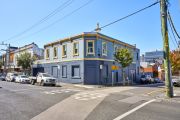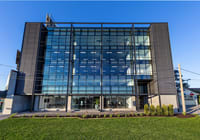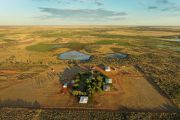
Transport, e-commerce keep Gold Coast industrial market afloat
Gold Coast’s industrial sector has remained buoyant during COVID-19, with leasing activity on the rise as transport and e-commerce companies seek additional space to cope with consumer demand.
Colliers International industrial director Daniel Coburn said after an initial shock in week one to two of the shutdown period, the broader industrial market was proving resilient.
“E-commerce businesses noticed an upswing in demand – some anecdotal feedback from clients was that their sales were up 30 to 40 per cent, while other groups that manufacture sanitisers and cleaning products locally have had their business increase 10-fold,” he said.
“Some locally owned manufacturing businesses are winning long-term contracts from overseas manufacturers. The feedback is that this is due to the low Aussie dollar, increased shipping costs, and disruptions to the supply chain – we expect this trend to continue.”
Lisa Murdoch, JLL Queensland valuations and advisory director, said the industrial market was considered to be one of the more immune sectors, with particular emphasis on the logistics area.
“Some vacancy has developed in the smaller service industry such as mechanical repairs, with customers putting work or repairs on hold over the COVID-19 period, however, the industry is expected to recover once lockdown eases,” she said.
McGees Property director Gavin Moore said smaller industrial users of up to 100 square metres had been active in the market.
“Part of that has been they have been trying to work out how to extract themselves out of larger premises and shrink into more cost-effective solutions,” he said. “They are certainly downgrading in quality and sizing.
“On the flipside, we have been working very closely with our landlords in those corridors to maintain and keep these tenants in their existing facilities.”
Sentiment within the industrial sector was positive with inquiries for medium-sized assets strong, along with land opportunities, due to the lack of supply within the central and southern Gold Coast, CBRE Gold Coast industrial and logistics director David Corke said.
“As businesses adapt to the pandemic, we are seeing more operations embrace online sales, creating a need for more warehouse space to meet market demand,” he said.
“As we start to see markets reopen, we anticipate an uptick in the manufacturing sector as international suppliers face difficulties within their own borders.
“The appetite for investment stock is still apparent and we look to see this steadily increase over the coming months as restrictions ease.”
According to Savills Gold Coast director Kevin Carmody, like everywhere else the coronavirus has had a telling impact on the commercial and retail markets.
“The Gold Coast has a lot of businesses in the tourist, education and health sectors, these businesses operate from a national and international perspective,” he said.
“On the above-mentioned basis, there has been deals and negotiations that have stalled, with many groups withdrawing from previously agreed positions.
“Conversely, there are many groups looking for opportunity in terms of acquisitions, and there is still plenty of money looking for a home on the Gold Coast. “
The retail market, including convenience and neighbourhood centres, had been the least impacted by COVID-19, with strong sales figures reported for fresh food and supermarket categories, Ms Murdoch said.
“Local convenience strip shops have benefited from changes to spending habits, with customers trying to limit their exposer to larger, enclosed, mall shopping centres,” she said.
Colliers International retail sales director in charge Steven King said retail investors would be selective on the type of tenants and the viability of that tenant once COVID-19 trading restrictions were relaxed.
He said there was strong demand and minimal impact for long-term tenanted assets with lease covenants secured by quality tenants not affected significantly by COVID-19 such as Woolworths, Coles, Bunnings and pharmacies.
Meanwhile, the Gold Coast’s office market has yet to show a substantial impact from the pandemic, Cushman & Wakefield Gold Coast director in charge Scott Dalton said.
“Given the short period of time we have been dealing with COVID-19 and the significant government aid, we are yet to see sale and leasing rates substantially affected in either the office or industrial markets,” he said.
“While both demand and deal volume are currently subdued, the prospect of restrictions easing has lifted sentiment and client conversations are now about navigating the road to recovery.”









